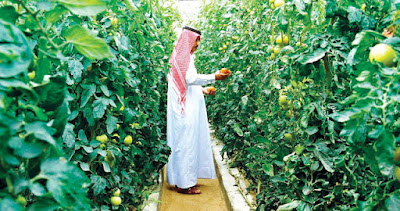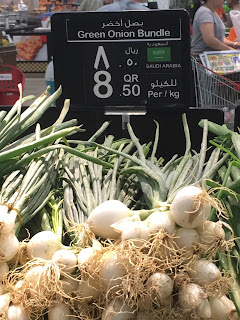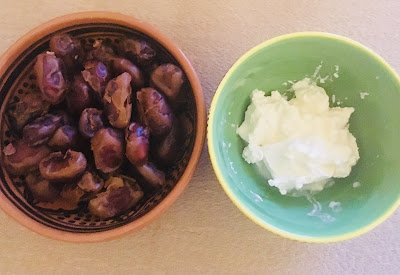Think global - buy local
Now one wouldn't necessarily think of the Middle East region as a salad garden, given the lack of rainfall throughout the year, so the plans for Qatar to achieve self-sufficiency in vegetable production over the next 5 years may seem ambitious.
But this is indeed the aim, as stated by the Minister of Municipality and Environment, Mohammed bin Abdullah Al Rumaihi at an event for Qatari farmers held back in January this year.
This came to my attention after I started to notice more local produce in the Carrefour supermarket where I do my weekly shop. I've been impressed by the supermarket's policy of labelling the country of origin of all fresh produce, which gives consumers the choice to support local farmers in Qatar and other producers from the region.
The issue of 'food miles' has been on the minds of western consumers for some years now, as we learn more about the impact of food transportation on the environment.
Being from the UK, there is an emphasis now on buying locally and eating products which are 'in season', bringing with it the benefits of being fresher, tastier, free from preservatives and usually cheaper. But also, of course, means that it hasn't travelled for miles across the world to your plate, which thereby also lessens the carbon footprint.
So seeing more local produce from the Middle East region and particularly from Qatar itself, is very exciting. Qatari grown products include mushrooms, cucumbers, spinach, tomatoes, peppers, beans, aubergines and courgettes.
Some farms are using all year round hydroponic techniques, without soil, in greenhouses under the never ending sunshine of the region. The preciously scarce water is recycled, going around the system some 20 times. Others use more traditional farming during the more temperate months of September to June, using a sophisticated drainage system to use water more efficiently.
With Qatar having the unfortunate position of being listed consistently in the top 10 most obese countries in the world, and a recent Qatar Biobank report for 2016 showing that 70% of the national population are obese or overweight, an emphasis on encouraging people to eat more healthy organic produce should be a priority.
For my part, I make an effort to buy produce from Qatar or as close to Qatar as possible. This week, my basket consisted of milk, cheese, yoghurt, and spring onions from Saudi Arabia...
grapefruits from Turkey .... and most exciting of all.... mangos from Yemen!
Of course, one can also find a variety of fruits and vegetables from every country in the world, particularly Europe. For Qatar's farmers to be successful, they will need to find a way to promote Qatari produce and incentivise the retailers to sell it and the shoppers to buy it.





















Comments
Post a Comment